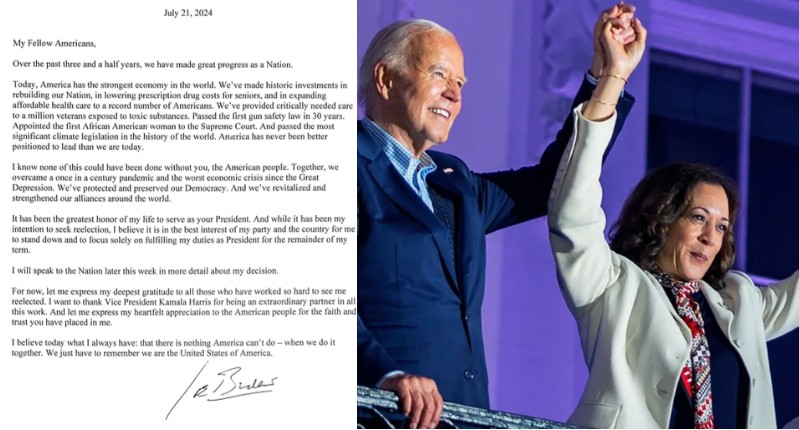Democratic State Representative Kelly Cassidy of Illinois has stirred controversy and gained praise after filing a groundbreaking bill aimed at providing support for individuals and healthcare providers fleeing states with stringent Republican abortion laws. The proposed legislation, if passed, would establish a $500 tax credit for those compelled to relocate due to restrictive reproductive
healthcare policies. This move comes amidst a broader national debate over reproductive rights and healthcare access.
Kelly Cassidy’s bill extends beyond abortion care, encompassing individuals escaping states with prohibitive laws against gender-affirming medical treatments. This comprehensive approach underscores the urgency of addressing broader healthcare disparities and protecting LGBTQ+ rights. The tax credit would be applicable to taxpayers who permanently relocate to Illinois, providing crucial financial relief to those forced to uproot their lives in pursuit of essential medical services and personal safety.
Furthermore, the bill extends support to public school educators facing restrictions on teaching controversial subjects such as race, gender, or sexual orientation in red states. By offering assistance to educators affected by ideological censorship, the legislation seeks to uphold academic freedom and combat efforts to suppress diverse perspectives in educational settings.
A Beacon of Democratic Leadership
Representative Kelly Cassidy’s advocacy reflects a commitment to inclusive governance and social justice. As one of only two openly LGBTQ+ lawmakers in the Illinois General Assembly, Kelly Cassidy brings personal insight into the challenges faced by marginalized communities. Her poignant remarks highlight the profound impact of discriminatory laws on individuals and families, emphasizing the urgent need for legislative action to safeguard basic rights and freedoms.
The proposed bill has garnered widespread support from advocates and progressive lawmakers, who view it as a crucial step towards protecting reproductive rights, healthcare access, and academic freedom. By addressing the intersecting issues of reproductive justice, LGBTQ+ rights, and educational autonomy, Kelly Cassidy’s initiative exemplifies proactive leadership in the face of regressive policies.

Conclusion: Championing Equity and Justice
In a political climate fraught with partisan divisions and attacks on fundamental rights, Representative Kelly Cassidy’s bold legislative proposal stands as a beacon of hope for those marginalized by discriminatory laws. By offering tangible support to individuals and healthcare providers fleeing oppressive environments, the bill demonstrates a commitment to equity, inclusivity, and human dignity. As the debate unfolds in the Illinois legislature, the fate of this historic initiative will not only shape the future of reproductive rights and LGBTQ+ equality in the state but also send a powerful message to policymakers nationwide about the importance of standing up for progressive values.
Representative Kelly Cassidy of Illinois Stirs Controversy with Tax Incentive Proposal
In a move that has sparked heated debate and divided opinions, Representative Kelly Cassidy of Illinois has proposed legislation that seeks to create tax incentives aimed at enticing individuals and businesses to relocate based on political disagreements. This bold initiative, while intended to address perceived injustices and ideological divides, has drawn criticism from various quarters for its potential to exacerbate existing tensions and foster further division within the nation.
Kelly Cassidy’s proposal comes at a time of heightened political polarization, with partisan rifts widening and ideological differences becoming increasingly entrenched. By offering tax incentives to those who relocate from states or regions with differing political ideologies, the legislation risks deepening these divides and undermining efforts to promote unity and understanding across party lines. Critics argue that such measures only serve to further entrench partisan divisions, rather than fostering dialogue and compromise.
Moreover, opponents of Kelly Cassidy’s proposal contend that tax incentives should not be leveraged as a tool to address political disagreements, but rather as a means to promote economic development and social progress. They argue that legislation should focus on creating inclusive policies that benefit all citizens, regardless of their political affiliations, rather than privileging certain individuals or groups based on their ideological beliefs.

Celebrating Tax Incentives for Universal Basic Human Rights
In contrast to the controversy surrounding Kelly Cassidy’s proposal, there is widespread support for initiatives aimed at promoting universal basic human rights through tax incentives. Advocates argue that policies designed to encourage the universal application of rights such as freedom of thought, bodily autonomy, and safety are essential for fostering a more just and equitable society.
By celebrating tax incentives that prioritize fundamental human rights, lawmakers can send a powerful message about the importance of compassion, empathy, and solidarity. Such initiatives not only benefit individuals directly by providing them with greater freedom and autonomy but also contribute to the overall well-being and prosperity of society as a whole.
Furthermore, proponents argue that access to gender-affirming care and reproductive healthcare should be recognized as fundamental human rights rather than political disagreements. These are matters of life and death, deeply personal to individuals, and essential for their health and well-being. By supporting policies that ensure access to essential healthcare services, lawmakers can demonstrate their commitment to upholding basic human rights and promoting social justice for all.
while Representative Kelly Cassidy’s proposal has sparked controversy and raised important questions about the role of tax incentives in addressing political disagreements, there is broad consensus on the importance of celebrating initiatives that promote universal basic human rights. By focusing on policies that prioritize compassion, empathy, and solidarity, lawmakers can work towards building a more inclusive and equitable society for all.
Table of Contents
Discover more from OGM News NG
Subscribe to get the latest posts sent to your email.














